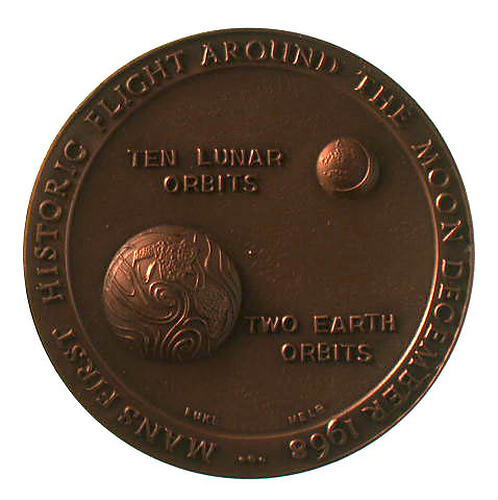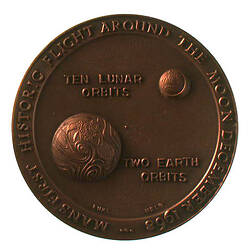James Lovell was born on 25 March 1928 in Cleveland, Ohio. He was educated at the University of Wisconsin and at the United States Naval Academy, achieving a bachelor of science in 1952. He married Marilyn Gerlach of Milwaukee, Wisconsin; their first child was born in 1953. In 1958 he attended Test Pilot School, NATC, Patuxent River, Maryland, and in 1961 attended the Aviation Safety School at the University of Southern California.
During his naval career Lovell had many assignments as an aviator, including four years as a test pilot at the Naval Air Test Center in Patuxent River, Maryland. He served as Program Manager for the F4H 'Phantom' Fighter and as safety engineer with the Fighter Squadron 101 at the Naval Air Station, Oceana, Virginia. Captain Lovell was selected as an astronaut by NASA in September 1962. He went on to serve as backup pilot for the Gemini 4 flight and backup commander for the Gemini 9 flight, as well as backup commander to Neil Armstrong for the Apollo 11 lunar landing mission.
On 4 December 1965 he and Frank Borman were launched into space on the historic Gemini 7 mission. The flight lasted 330 hours and 35 minutes and included the first rendezvous of two manned maneuverable spacecraft. On 11 November 1966 he commanded the Gemini 12 mission, with Pilot Edwin Aldrin. This four-day, 59-revolution flight brought the Gemini program to a successful close. On December 21-27 1968 Lovell served as Command Module Pilot and Navigator on the epic six-day journey of Apollo 8, the first voyage to the moon. Apollo 8 was the first piloted spacecraft to be lifted into near-earth orbit by a 7-1/2 million pound thrust Saturn V launch vehicle. Lovell and fellow crewmen, Frank Borman and William A. Anders, became the first humans to leave the Earth's gravitational influence.
Captain Lovell completed his fourth mission as Spacecraft Commander of the ill-fated Apollo 13 moon flight on April 11-17 1970, becoming the first person to journey twice to the moon. When Apollo 13's cryogenic oxygen system failed, Lovell and fellow crewmen, John L. Swigert and Fred W. Haise, worked with Houston ground controllers to ensure their safe return to earth.
Lovell held the record for time in space with a total of 715 hours and 5 minutes until surpassed by the Skylab flights. He was awarded honorary doctorates from Rockhurst College, Illinois Wesleyan University, Western Michigan University, and Mary Hardin Baylor College.
Lovell retired from the Navy and Space Program in 1973 and moved into a business career.
References:
NASA website http://www.jsc.nasa.gov/Bios/htmlbios/lovell-ja.html, accessed 27/11/2003 and 3/11/2010.
More Information
-
Keywords
-
Localities
-
Authors
-
Article types

